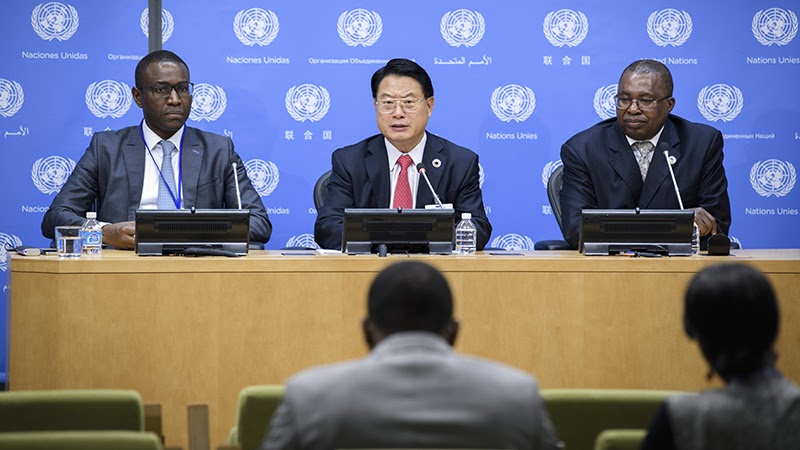Mr. Li Yong, the Director-General of the United Nations Industrial Development Organization (UNIDO) has emphasised the need for paying due attention to building resilience in increasing Africa’s industrialisation.
He made the remarks during the High-Level Session, Africa Industrialization Day on “Inclusive and Sustainable Industrial Development in the AfCFTA era” on 20 November 2020.
“This year’s commemoration is taking place at a particular time when the challenges and opportunities arising from the COVID-19 pandemic, as well as the imminent start of trading under the African Continental Free Trade Area (AfCFTA) have brought the need to speed up Africa’s industrialization process to the fore.
“In this regard, there is a need to explore, map, and implement measures that will stimulate better, faster, and durable economic recovery, whilst paying due attention to building resilience,” the UNIDO Director-General said.
The impact of COVID-19 pandemic has affected many sectors. It is expected that the pandemic will cost Sub-Saharan Africa an estimated US$ 37 billion and US$ 79 billion in terms of output losses for 2020. An estimated 40 to 60 million jobs could be lost in Africa alone due to the pandemic. In addition, according to the World Bank, 23 million of the people projected to be pushed into extreme poverty worldwide due to COVID-19 live in Sub-Saharan Africa.
“These challenges underscore the importance of multi-stakeholder partnerships and offer new avenues for collaboration, as we seek to support African governments and societies to build back better.”
Mr. LI said the AfCFTA offers a concrete avenue for African economies to recover from the socio-economic impact of the COVID-19 pandemic and to build back better.
Among others, the AfCFTA is expected to catalyze the structural transformation from resource- and low-technology-based economies to more diversified knowledge-based economies, whilst promoting product diversification through increased market access.
The single trade regime will inevitably foster conditions that boost intra- African trade and attract foreign direct investment into the continent. It also offers scope for production at economies of scale and regional value chain development, as well as their subsequent integration into global value chains. It will also stimulate cooperation in various areas, such as technology transfer, innovation, as well as continent-wide infrastructure development.
“However, for the AfCFTA to be successful, deliberate efforts to address structural transformation and industrialization are required. In this regard, policies should also be geared towards strengthening links between trade and industrial strategies and policies, developing industrial infrastructure, promoting regional value chains, upgrading digital capacities, enhancing productive and trade capacities, promoting green industry and circular economies, and developing and upgrading industrial skills,” he added.
As the AfCFTA comes into operation, lurking on the horizon is the challenge for African governments and entrepreneurs to create decent jobs for the 170 million African youth set to enter the jobs market between 2020 and 2030.
Industrial skills development becomes critical in this regard. The COVID-19 pandemic has exposed the vulnerabilities of African health systems and economies. The agenda ahead is to transform these vulnerabilities to strength and resilience.
The effects of the COVID-19 Pandemic have further presented an opportunity for our institutions to forge a more collaborative relationship toward shared objectives through a mutually agreed division of labour. Dialogue, solidarity, and collaboration are now more important as we try to find common solutions to common problems.
For instance, as a response to the COVID-19 Pandemic, cross-institutional approaches are already in place aimed at making central the issue of industrialisation at national levels through pooled procurement of medicines in addition to promoting local production and quality assurance. All this has the potential to bring positive change to the pharmaceutical sector on the continent.
The approach towards developing institutional collaborative linkages aligns with the development agenda of Africa. Among the strategic partners’ industrialization and its contribution to the structural transformation of economies are top priorities of the continent’s respective institutional programming activities.
While previous approaches for supporting industrialization were done in silos, the AID has been instrumental in building up a noticeable shift towards collaborative and less institutional-specific approaches. Through partnerships, geographically dispersed initiatives have become functionally integrated and organized in complex inter-institution support networks.
The development of global and regional value chains have led African institutions to specialize in capabilities based on their comparative and competitive advantages rather than approaches that breed duplication and conflict of roles.






